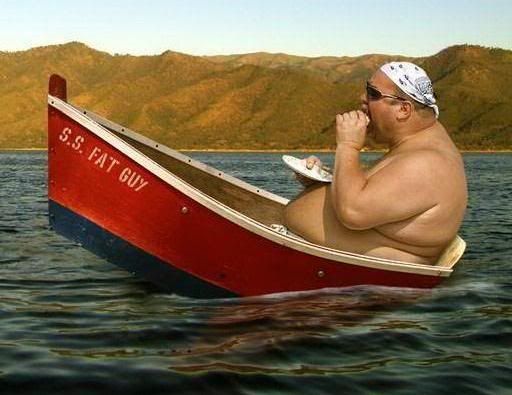 Go back to Todayinreligion.com
Go back to Todayinreligion.com
It's starting! Another generational pig is making its way through the python.
For the past hundred years, the United States has vacillated between large and small generations. The trend was started with the influx of European immigrants around the beginning of the 20th century and was cemented in place with the
Immigration Act of 1924, which restricted immigration.
Another large generation is rolling around. The echo boomers (millennium generation, Gen Y or Gen Next) were born roughly between 1982-1995. Soon they will dominate the social and economic fabric of the United States.
The Pew Research Center has released a survey of their attitudes. They tend to be more liberal, tolerant, more likely to vote Democratic and less religious than previous generations.
From the above link:
One-in-five members of Generation Next say they have no religious affiliation or are atheist or agnostic, nearly double the proportion of young people who said that in the late 1980s. And just 4% of Gen Nexters say people in their generation view becoming more spiritual as their most important goal in life.
This doesn't bode well for organized religion.
The above link has a good synopsis of their other characteristics. I would like to touch on their potential economic impact, which was not covered in the Pew study. True, this has nothing to do with religion but, it is very interesting.
In the past, whenever a large generation reaches their prime working years, there are technological advances and the stock market shoots up.
The below chart shows the progression of the stock market during the past 100 years. As you can see, it doesn't go up in a straight line.
Let's focus on the three most recent large generations, the stock market and innovation.
The
GI Generation was the first big one in the 20th century. They were born between 1901-1924 (many were children of immigrants). The stock market shot up between 1946-1965 (19 years) during this time, the youngest person of that generation was 22 and the oldest was 64.* The technological advances included mainframe computers, jets, solid state transistors, etc.
The
Boomers were the children of the GI Generation. They were born between 1946 and approximately 1963. The stock market shot up between 1982-2000 (18 years) during this time, the youngest boomer was 19 and the oldest was 54. The major technological advance during that time was Information Technology.
The
Echo boomers (Millennium generation) are the children of the boomers. They were born roughly between 1982-1995. If the previous two 18 year bull/bear stock market patterns holds up, the market should remain flat until around 2016 and be strong until 2034. During the bull market, the youngest echo boomer will be 21 and the oldest will be 54. The technological advances of this generation are anybody's guess. Thomas L. Friedman of the New York Times thinks it might be energy technology.
There is a fudge factor here. There isn't clear agreement on when a generation begins and ends. However, the long tern stock market trends are pretty clearer. The stock market has been flat since around 2,000 or possibly 1998 depending on how you look at the chart. Therefore, the market has been flat for 9 to 11 years now. Considering the economic mess the country is in, it's not unreasonable to think it might take another five to eight years before the economy and the market pick up again. The Echo boomers might be the engine that pulls the train.
*The working years of the GI Generation are longer than the boomers and echo boomers because the older members of that generation got a late start because of the depression and WWII.

Go back to Todayinreligion.com






















